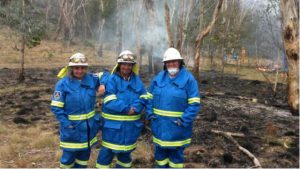Home » Commentary » Opinion » Financial security will bring Indigenous environmental sustainability
· IDEAS@THECENTRE
 A recent poll found that support for Indigenous ranger programs is high. However, these initiatives must promote financial independence as well as ecological sustainability.
A recent poll found that support for Indigenous ranger programs is high. However, these initiatives must promote financial independence as well as ecological sustainability.
Ranger programs – which largely undertake environmental conservation — employ thousands of Indigenous people across Australia. However, they remain heavily reliant on government grants. In 2017 $30 million of federal government funding was committed to Indigenous land management over the next four years.
If these programs are to be beneficial in the long term they must become financially self-sustainable. To do this, Indigenous communities need to leverage market opportunities that can create genuine sources of income.
Fortunately, there are commercial elements that can be incorporated into many Indigenous land management programs. Some activities are already being undertaken by rangers, but are yet to be fully exploited for financial gain.
Back burning of bush and grasslands is one of the most common practices of Indigenous ranger groups. With the Australian carbon farming industry expected to be worth up to $24 billion by 2030, Indigenous rangers are well placed to target this market by converting their burns into income generating carbon credits – as some groups are already doing.
In the Northern Territory, the economic potential of rampant feral buffalo populations offers another opportunity. Buffalo culling and population control should be harnessed for greater financial gain. Hunting safaris, led by rangers, could generate income and act as a disincentive to illegal killings and trespassing on Indigenous land.
Many of the skills rangers acquire could also be transferable to other employment opportunities or to running a small business. For example, rangers’ knowledge of the ecosystem and the Indigenous stories of a landscape could set the foundations for a four-wheel drive and camping tour enterprise.
Economic development is essential for remote Aboriginal communities wishing to close the gap. The ongoing growth of Indigenous ranger groups presents a significant chance for communities to target markets that can help them achieve this — it is an opportunity that should not be missed.
Financial security will bring Indigenous environmental sustainability